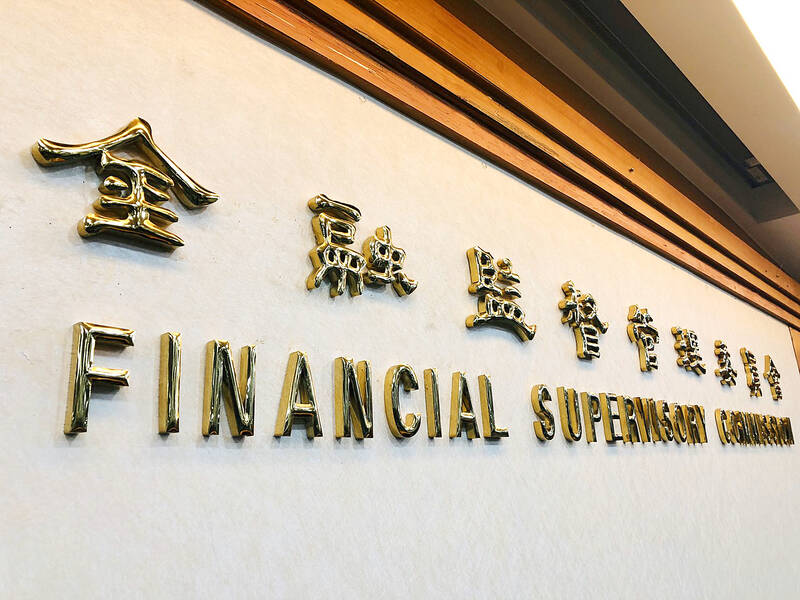The nation’s new Insurance Capital Standard (ICS) — set to take effect next year — would feature a four-tier framework to categorize insurance companies’ capital sufficiency, the Financial Supervisory Commission announced on Tuesday, alongside draft amendments to the Regulations Governing Capital Adequacy of Insurance Companies (保險業資本適足性管理辦法).
The new capital regime would replace the Risk-Based Capital system in January next year, introducing higher capital requirements on insurers to enhance their solvency capacity as well as requiring them to adopt a mark-to-market valuation for assets and liabilities, the commission said in a statement.
It also aligns the domestic insurance market more closely with global standards, it added.

Photo: Kelson Wang, Taipei Times
The four tiers for capital adequacy are defined as “adequate capitalization,” “insufficient capitalization,” “significantly insufficient capitalization” and “severely insufficient capitalization,” it said.
Under the current system, an insurer in Taiwan is classified as having adequate capital if its risk-based capital ratio — calculated by dividing the insurer’s working capital by its risk-weighted assets — is at or above 200 percent.
A ratio of 150 to 200 percent indicates inadequate capital, with significantly inadequate at 50 to 150 percent and severely inadequate at less than 50 percent, the commission said.
The regulator uses the capital adequacy ratio as well as the net worth value to determine whether it would need to impose regulatory sanctions, take over, suspend operations or order the dissolution of an insurer if it fails to meet the statutory standards.
After the implementation of the ICS system next year, the definition of “adequate capitalization” would be a capital adequacy ratio at or above 100 percent, while a ratio of 50 to 100 percent indicates “insufficient capitalization,” from 25 to 50 percent means “significantly insufficient capitalization” and below 25 percent would be considered “severely insufficient capitalization,” the commission said.
It said it would give insurers more flexibility to gradually adjust to the stringent requirements under the ICS system, as the new capital regime not only substantially changes capital requirements and risk management, but also affects investment strategies, asset allocation and product design for insurers.

SEMICONDUCTOR SERVICES: A company executive said that Taiwanese firms must think about how to participate in global supply chains and lift their competitiveness Taiwan Semiconductor Manufacturing Co (TSMC, 台積電) yesterday said it expects to launch its first multifunctional service center in Pingtung County in the middle of 2027, in a bid to foster a resilient high-tech facility construction ecosystem. TSMC broached the idea of creating a center two or three years ago when it started building new manufacturing capacity in the US and Japan, the company said. The center, dubbed an “ecosystem park,” would assist local manufacturing facility construction partners to upgrade their capabilities and secure more deals from other global chipmakers such as Intel Corp, Micron Technology Inc and Infineon Technologies AG, TSMC said. It

NO BREAKTHROUGH? More substantial ‘deliverables,’ such as tariff reductions, would likely be saved for a meeting between Trump and Xi later this year, a trade expert said China launched two probes targeting the US semiconductor sector on Saturday ahead of talks between the two nations in Spain this week on trade, national security and the ownership of social media platform TikTok. China’s Ministry of Commerce announced an anti-dumping investigation into certain analog integrated circuits (ICs) imported from the US. The investigation is to target some commodity interface ICs and gate driver ICs, which are commonly made by US companies such as Texas Instruments Inc and ON Semiconductor Corp. The ministry also announced an anti-discrimination probe into US measures against China’s chip sector. US measures such as export curbs and tariffs

The US on Friday penalized two Chinese firms that acquired US chipmaking equipment for China’s top chipmaker, Semiconductor Manufacturing International Corp (SMIC, 中芯國際), including them among 32 entities that were added to the US Department of Commerce’s restricted trade list, a US government posting showed. Twenty-three of the 32 are in China. GMC Semiconductor Technology (Wuxi) Co (吉姆西半導體科技) and Jicun Semiconductor Technology (Shanghai) Co (吉存半導體科技) were placed on the list, formally known as the Entity List, for acquiring equipment for SMIC Northern Integrated Circuit Manufacturing (Beijing) Corp (中芯北方積體電路) and Semiconductor Manufacturing International (Beijing) Corp (中芯北京), the US Federal Register posting said. The

India’s ban of online money-based games could drive addicts to unregulated apps and offshore platforms that pose new financial and social risks, fantasy-sports gaming experts say. Indian Prime Minister Narendra Modi’s government banned real-money online games late last month, citing financial losses and addiction, leading to a shutdown of many apps offering paid fantasy cricket, rummy and poker games. “Many will move to offshore platforms, because of the addictive nature — they will find alternate means to get that dopamine hit,” said Viren Hemrajani, a Mumbai-based fantasy cricket analyst. “It [also] leads to fraud and scams, because everything is now